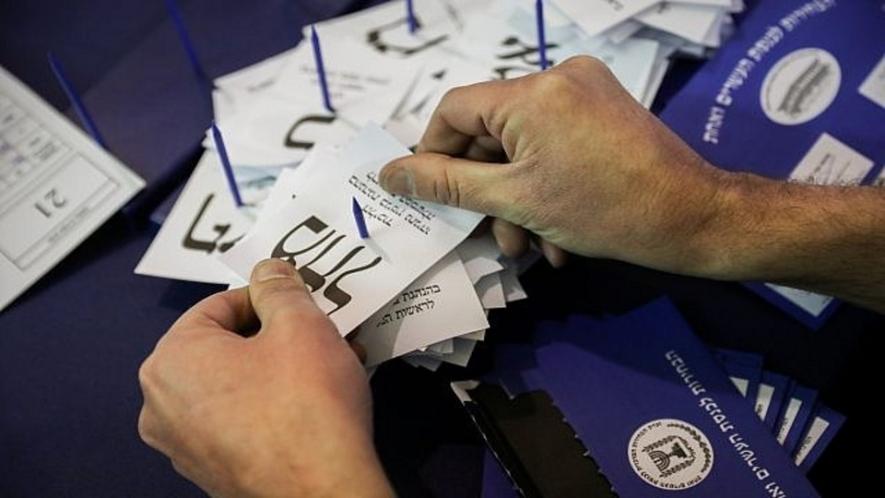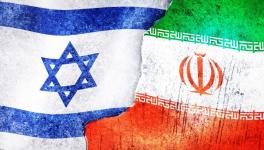Is the Era of Benjamin Netanyahu Over?

The repeat elections for the Knesset were held on September 17. Photo: Noam Revkin Fenton/Flash90
The dominance of Benjamin Netanyahu over the politics of Israel looks increasingly shaky as his Likud party has secured fewer seats than its main rival, the Blue and White alliance, in the repeat elections held to the Knesset on September 17. As per the final results declared by the Israeli Central Election Committee, Likud has got 31 seats, 4 less than the last elections, while the Blue and White has managed 33, down by two from the previous round.
However, it is unlikely that any new dispensation would bring about any major change to the politics of Israel as most major parties have similar positions on the issue of Palestine and illegal settlements in the West Bank.
Sensing defeat, Netanyahu invited the head of Blue and White Alliance, Benny Gantz, for talks to form a unity government. However, this offer was rejected, with Gantz terming Netanyahu’s call for unity a “plot.”
Gantz had also called for a unity government earlier, but one which would exclude Netanyahu. The corruption charges against him were the Blue and White’s central plank during their election campaign.
As per the results, both the main contending parties have failed to secure 61 seats, which is needed to form a government in the 120-member Knesset.
It is being speculated that Likud, to strengthen Netanyahu’s position, wants to include its coalition partners, Shas (9 seats), United Torah Judaism (UTJ) (7 seats) and Yamina (7 seats), in any future unity government. These parties have already signed a document declaring Netanyahu as their leader.
Benny Gantz would like to avoid forming a government with Shas and UTJ, which are considered to be ultra-orthodox religious parties, while the Blue and White portrays itself as a “secular” formation.
It remains to be seen if the ultra-right Yisrael Beytenu party, led by Avigdor Lieberman, which has secured 8 seats, will join forces with the Blue and White. Netanyahu would like to avoid any participation by Lieberman in the unity government. In fact, the current round of elections were called by Netanyahu due to his failure to convince Lieberman to be part of his alliance in April.
Meanwhile, in the final tally, the Arab Joint List has emerged as the third largest group in the Knesset with 13 seats. The center-left alliance of Labour-Gesher has secured 6 seats, while another center-left coalition, the Democratic Union, led by ex-prime minister Ehud Barak, got 5 seats.
The September 17 polls saw a marginal increase in voter turnout from the last elections in April. 69.5% of the Israeli voters exercised their franchise in this election, whereas in April, the voter turnout was around 68%.
However, the turnout among the Arab voters was quite significant this time. Around 60% of the Israeli Arabs voted in the September elections, compared to just 49% in April. The surprisingly high turnout among the Arabs is attributed to Netanyahu’s overtly racist allegations against them. He claimed that Arabs were “stealing the votes”. Such inflammatory statements may have propelled the Arab parties to come together once again to contest these elections.
The Arab parties’ joint list is headed by Ayeman Odeh, who may become the leader of the opposition, in the case of a unity government between Likud and the Blue and White Alliance. However, given the hostilities between the Zionist parties, the position of the leader of the opposition will most likely be voted upon.
Mainstream Zionist parties have carried out a consistent campaign against the Arab parties because of their support for an independent Palestinian state. They have not been allowed to be a part of any government in the history of Israel. In fact, the bogey of their possible involvement in the government has become a rallying point for the ultra-right-wing forces in Israel.
Netanyahu has used such polarizing tactics on several occasions in the past. After it became clear that he is losing the current elections, he went on to declare that “there are only two options: A government headed by me or a dangerous government together with anti-Zionist Arab parties”.
Get the latest reports & analysis with people's perspective on Protests, movements & deep analytical videos, discussions of the current affairs in your Telegram app. Subscribe to NewsClick's Telegram channel & get Real-Time updates on stories, as they get published on our website.
























